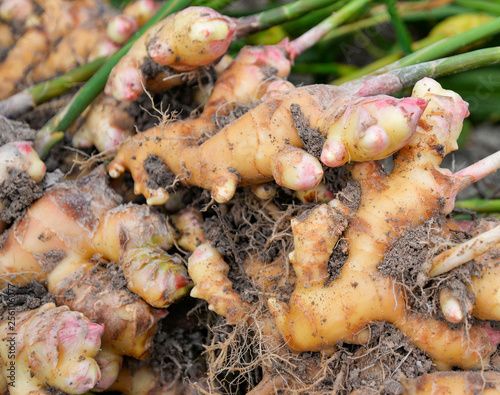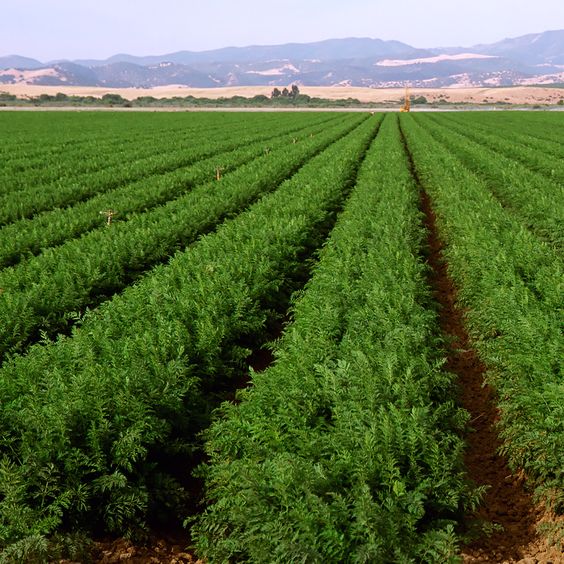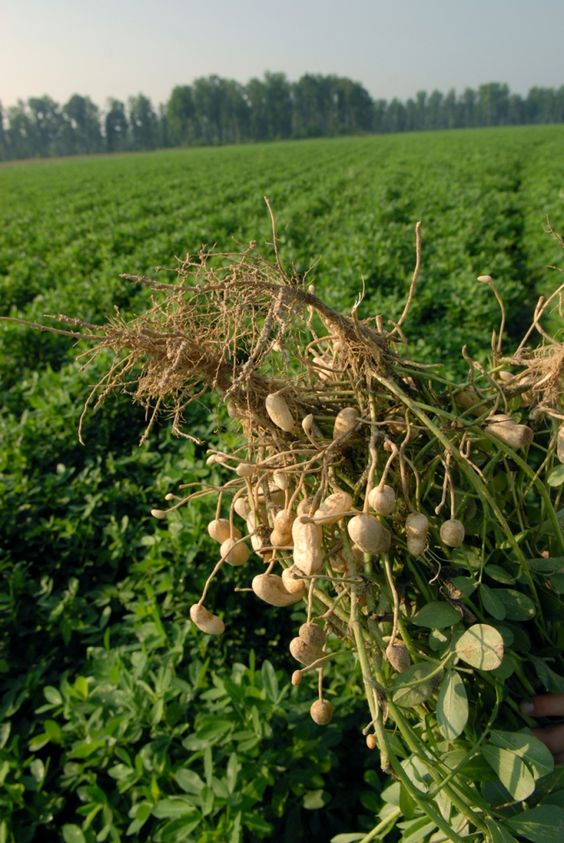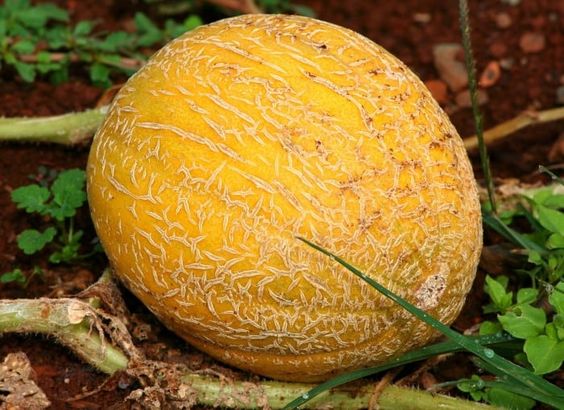Organic Ginger Cultivation: A Smart Agricultural Approach
Organic Ginger Cultivation, a rhizomatous herbaceous plant belonging to the Zingiberaceae family, has been cultivated for centuries for its culinary, medicinal, and commercial value. With a growing global demand for organic products and the increasing adoption of smart agricultural practices, organic ginger cultivation emerges as a promising and sustainable agricultural venture. This comprehensive article delves into the intricacies of organic ginger cultivation, emphasizing the integration of smart agriculture technologies to optimize production, quality, and environmental sustainability.
Contents
- 0.1 Benefits of Organic Ginger Cultivation
- 0.2 Objectives of Organic Ginger Cultivation
- 0.3 Smart Agriculture Technologies in Organic Ginger Cultivation
- 0.4 Organic Ginger Cultivation Practices
- 0.5 Advantages of Organic Ginger Cultivation
- 0.6 Advantages and Specialties of Organic Ginger Cultivation
- 1 Organic Ginger Cultivation: Challenges and Opportunities
Benefits of Organic Ginger Cultivation
Organic ginger cultivation offers a multitude of benefits, encompassing economic, environmental, and health aspects. From a financial standpoint, organic ginger often commands a premium price in the market due to its perceived health benefits and adherence to stringent organic standards. Moreover, the reduced reliance on synthetic inputs leads to cost savings in the long run.
Environmentally, organic ginger cultivation contributes to soil health improvement, biodiversity conservation, and reduced water pollution. By eschewing harmful chemicals, organic farmers mitigate the risks of contaminating water bodies and harming beneficial organisms. Additionally, organic practices enhance soil structure and fertility, promoting long-term agricultural sustainability.
On the health front, organic ginger is often associated with higher levels of bioactive compounds, such as gingerol, shogaol, and zingerone, which possess potent antioxidant, anti-inflammatory, and analgesic properties. Consuming organic ginger is believed to offer numerous health benefits, including improved digestion, reduced nausea, and pain relief.
Objectives of Organic Ginger Cultivation
The primary objectives of organic ginger cultivation are to produce high-quality, organic ginger while preserving soil health, biodiversity, and ecosystem balance. Specific goals include:
- Adhering to strict organic standards and regulations to ensure product purity and integrity.
- Optimizing ginger yield and productivity through the implementation of sustainable farming practices.
- Enhancing ginger quality in terms of flavor, aroma, and bioactive compound content.
- Minimizing the use of synthetic inputs, such as fertilizers, pesticides, and herbicides.
- Promoting soil health and fertility through organic amendments and cover cropping.
- Conserving water resources through efficient irrigation practices.
- Protecting biodiversity and supporting beneficial insects and pollinators.
- Mitigating climate change impacts through carbon sequestration and reduced greenhouse gas emissions.
Smart Agriculture Technologies in Organic Ginger Cultivation
The integration of smart agriculture technologies can significantly enhance the efficiency and sustainability of organic ginger cultivation. These technologies provide valuable data and insights, enabling farmers to make informed decisions and optimize resource utilization.
- Precision Agriculture: Utilizing GPS-enabled equipment, sensors, and data analysis to precisely apply inputs, monitor crop growth, and identify areas with varying soil conditions or plant health.
- Soil Moisture Sensors: Continuously monitoring soil moisture levels to optimize irrigation schedules and prevent waterlogging or drought stress.
- Weather Stations: Collecting real-time weather data, including temperature, humidity, rainfall, and wind speed, to predict weather patterns and make informed crop management decisions.
- Drones and Remote Sensing: Capturing high-resolution images and data to monitor crop growth, detect pests and diseases, and assess overall field conditions.
- Crop Monitoring Systems: Using sensors and image analysis to track plant growth, yield potential, and nutrient status.
- Data Analytics and Modeling: Analyzing large datasets to identify trends, optimize resource allocation, and predict crop performance.
Organic Ginger Cultivation Practices
Organic ginger cultivation involves a holistic approach that prioritizes soil health, biodiversity, and ecosystem balance. Key practices include:
- Soil Preparation: Proper soil preparation is essential for successful ginger cultivation. This involves improving soil structure, fertility, and drainage through organic amendments such as compost, manure, and cover crops.
- Propagation: Ginger is typically propagated from rhizomes. Healthy, disease-free rhizomes are selected and divided into planting materials.
- Planting: Ginger is planted in well-prepared soil, ensuring adequate spacing between plants for optimal growth and development.
- Weed Management: Organic weed control methods include mulching, hand weeding, and the use of cover crops to suppress weed growth.
- Pest and Disease Management: Integrated pest and disease management (IPDM) strategies are employed to prevent and control pests and diseases. This involves a combination of cultural practices, biological control agents, and physical removal.
- Harvesting: Ginger is typically harvested after 8-10 months of growth, when the leaves start to turn yellow and wither.
- Post-Harvest Handling: Proper post-harvest handling is crucial to maintain ginger quality. This includes cleaning, drying, and storage under appropriate conditions.
Advantages of Organic Ginger Cultivation
Organic ginger cultivation offers several advantages over conventional methods:
- Premium Market Price: Organic ginger often commands a higher price due to consumer demand for organic products.
- Improved Soil Health: Organic practices build soil fertility and structure, leading to long-term sustainability.
- Reduced Environmental Impact: Organic farming minimizes pollution, conserves water, and protects biodiversity.
- Enhanced Product Quality: Organic ginger is often perceived to have superior taste, aroma, and nutritional value.
- Consumer Health Benefits: Organic ginger is free from harmful chemical residues, promoting consumer health and well-being.
Advantages and Specialties of Organic Ginger Cultivation
Organic ginger cultivation stands out due to its unique advantages and specialties:
- Sustainability: Organic ginger farming prioritizes ecological balance and resource conservation.
- Traceability: Organic certification ensures the traceability of ginger from farm to table, building consumer trust.
- Health Benefits: Organic ginger is often associated with higher levels of bioactive compounds, promoting overall health.
- Market Demand: The increasing demand for organic products creates a lucrative market for organic ginger.
- Innovation: Organic farmers often embrace innovative practices and technologies to improve efficiency and sustainability.
Organic Ginger Cultivation: Challenges and Opportunities
While organic ginger cultivation presents numerous advantages, it also comes with specific challenges that require careful consideration and management. These challenges include:
Challenges in Organic Ginger Cultivation
- Weed Management: Organic weed control can be labor-intensive and time-consuming, requiring diligent attention to prevent weed competition with ginger plants.
- Pest and Disease Control: Managing pests and diseases organically can be challenging, as the options are limited compared to conventional agriculture. Relying on preventive measures, cultural practices, and biological control agents is crucial.
- Yield Variability: Organic ginger yields can be more variable than conventional systems due to factors such as weather conditions, soil fertility, and pest pressure.
- Market Access: Finding reliable and profitable markets for organic ginger can be challenging, especially for small-scale farmers.
- Certification Costs: Obtaining and maintaining organic certification involves costs and paperwork, which can be a barrier for some farmers.
Overcoming Challenges and Seizing Opportunities
To overcome these challenges and capitalize on the opportunities offered by organic ginger cultivation, farmers can adopt the following strategies:
- Diversification: Incorporating diverse crops into the farming system can help manage risks and improve soil health.
- Knowledge and Skill Development: Investing in training and education can enhance farmers’ knowledge of organic production techniques and market trends.
- Collaboration: Building strong relationships with other organic farmers, cooperatives, and market intermediaries can facilitate knowledge sharing, resource pooling, and market access.
- Technology Adoption: Embracing smart agriculture technologies can improve efficiency, precision, and data-driven decision-making in organic ginger cultivation.
- Value-Added Products: Developing value-added products, such as ginger-based processed foods or herbal remedies, can increase product value and market differentiation.
Organic ginger cultivation offers a promising opportunity for farmers to produce high-quality, sustainable, and profitable crops. By adopting smart agricultural practices, overcoming challenges, and exploring value-added product development, the organic ginger industry can continue to grow and thrive.




